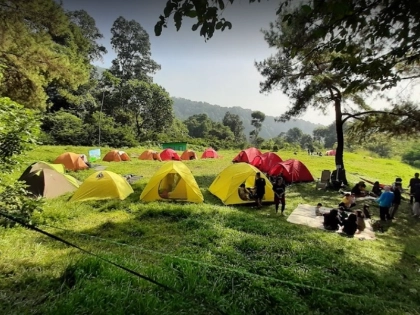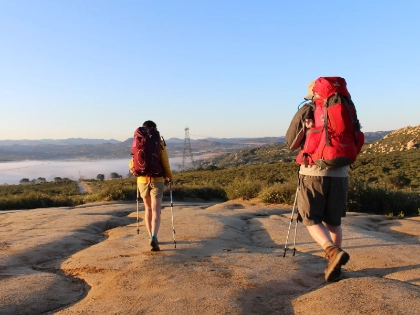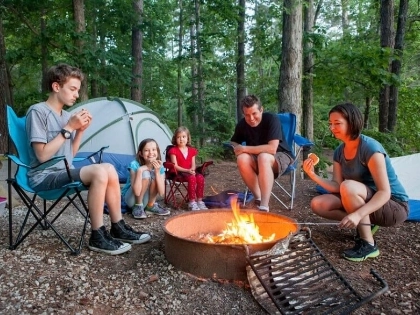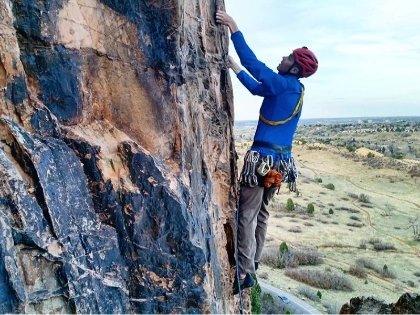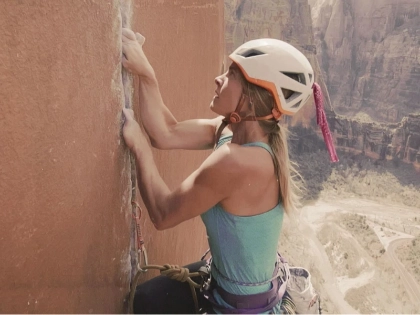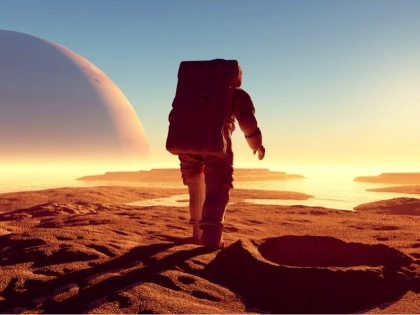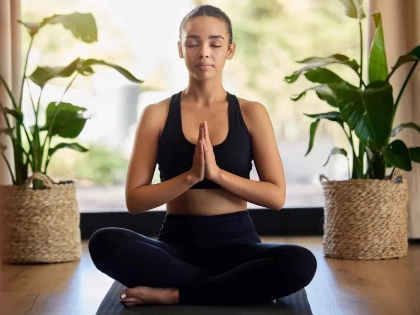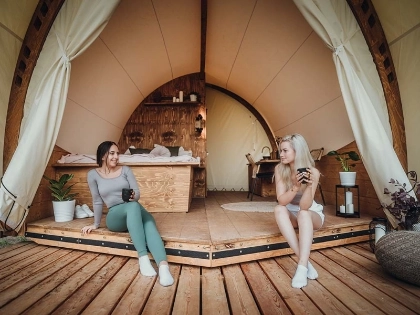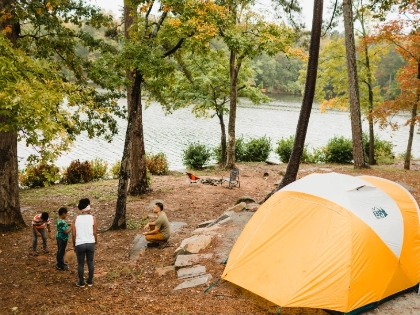How Does Weight Impact a Hike?
Many say it's completely manageable to carry between thirty and fifty pounds, especially on shorter hikes. With this much weight, stability and core strength are an issue. When hiking, the most crucial figure to know is your base weight, which is the weight of your pack empty of consumables like food, drink, and fuel. This is important since it will have an impact on every facet of your walk.
Less Stress on Your Body
 Advertisement
Advertisement
Hiking is a great way to increase your endurance, strengthen your muscles and bones, increase your burning of calories, and enhance your balance. Additionally, it has positive effects on mental health that can elevate your mood and lower stress and anxiety levels. Whether you walk on level terrain or a steep incline, walking exercises your quads, hamstrings and glutes. In addition to strengthening your back, shoulders, and arms, carrying a rucksack also works your core, a collection of torso stabilising muscles. Similar to other types of cardiovascular exercise, hiking has a major positive impact on heart health. Regular walks help lower blood pressure and cholesterol, which lowers the risk of cardiovascular disease and stroke. They also promote blood flow and strengthen the cardiovascular system. By increasing your maximal oxygen consumption, or VO2 max, which gauges how well your body delivers oxygen to the muscles during exercise, hiking can also help you gain endurance.
Reduced Energy Usage
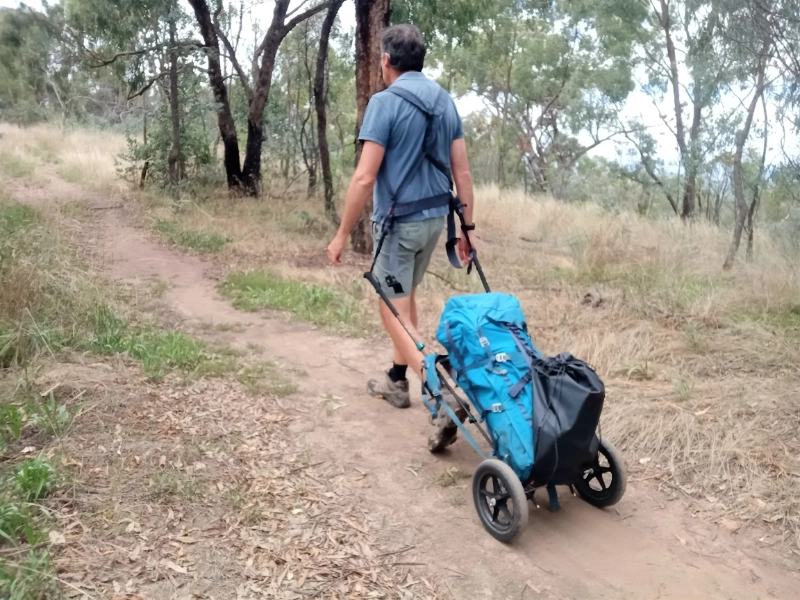 Hiking terrain is one of the special variables that can influence how many calories you burn. A steep, difficult walk that requires you to engage your legs and core muscles to propel yourself up and over hills and uneven terrain will burn more calories than a leisurely stroll on level walking trails without any substantial inclines or rocky portions.
Furthermore, carrying additional weight on your walk, such as backpacks and other gear, will greatly increase the amount of energy you use up while hiking. Wearing a heart rate activity monitor on your walk is crucial since it allows you to monitor your workout intensity and the number of calories you burn both during and after your walk.
According to a 2020 study, when you walk on level sealed surfaces with your pack on your back, using a Trekker's Friend hiking trailer can save up to 69% of the energy required to move it. The savings increase with the weight of the pack. This is a fantastic method to reap the rewards of trekking whilst safeguarding your joints.
Hiking terrain is one of the special variables that can influence how many calories you burn. A steep, difficult walk that requires you to engage your legs and core muscles to propel yourself up and over hills and uneven terrain will burn more calories than a leisurely stroll on level walking trails without any substantial inclines or rocky portions.
Furthermore, carrying additional weight on your walk, such as backpacks and other gear, will greatly increase the amount of energy you use up while hiking. Wearing a heart rate activity monitor on your walk is crucial since it allows you to monitor your workout intensity and the number of calories you burn both during and after your walk.
According to a 2020 study, when you walk on level sealed surfaces with your pack on your back, using a Trekker's Friend hiking trailer can save up to 69% of the energy required to move it. The savings increase with the weight of the pack. This is a fantastic method to reap the rewards of trekking whilst safeguarding your joints.
Decrease in Energy Use
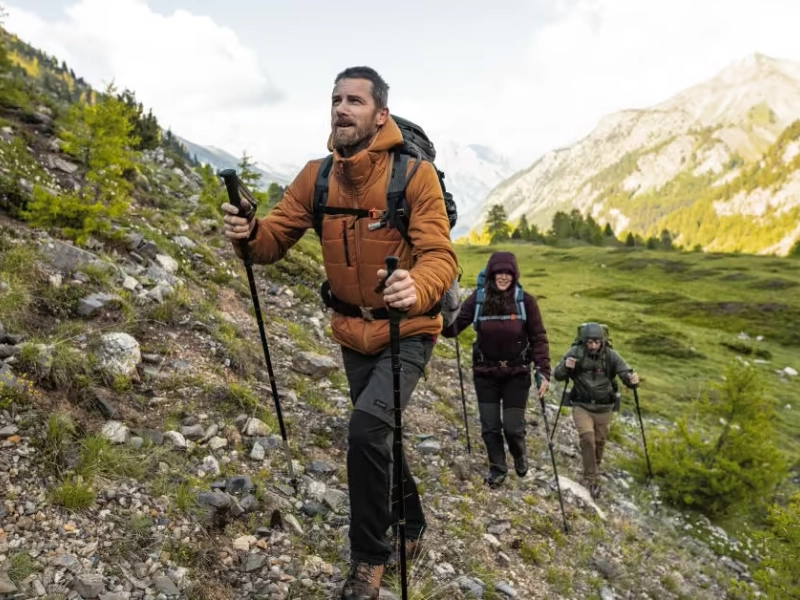 Another excellent method for readjusting your body and mind is to go hiking. Research indicates that engaging in outdoor physical activity might positively impact mood regulation and improve sleep quality at night. Hiking also engages the brain regions responsible for assisting you in overcoming hurdles in the real world like slick terrain, dangling branches, and concealed traps.
Hikes are also a fantastic workout for the core and upper body. While descending on a rough or root-covered path works the front of your thighs, which act as a brake to help you stay balanced on your feet, climbing up a steep track uses your hips, buttocks, and calves.
In the end, hiking is a full-body exercise that is beneficial for all skill levels. Hiking is a safe and beneficial form of exercise that offers numerous physical and mental advantages, provided that you take it slowly and increase both the weight of your backpack and the distance you go.
Another excellent method for readjusting your body and mind is to go hiking. Research indicates that engaging in outdoor physical activity might positively impact mood regulation and improve sleep quality at night. Hiking also engages the brain regions responsible for assisting you in overcoming hurdles in the real world like slick terrain, dangling branches, and concealed traps.
Hikes are also a fantastic workout for the core and upper body. While descending on a rough or root-covered path works the front of your thighs, which act as a brake to help you stay balanced on your feet, climbing up a steep track uses your hips, buttocks, and calves.
In the end, hiking is a full-body exercise that is beneficial for all skill levels. Hiking is a safe and beneficial form of exercise that offers numerous physical and mental advantages, provided that you take it slowly and increase both the weight of your backpack and the distance you go.
A Happier Hike
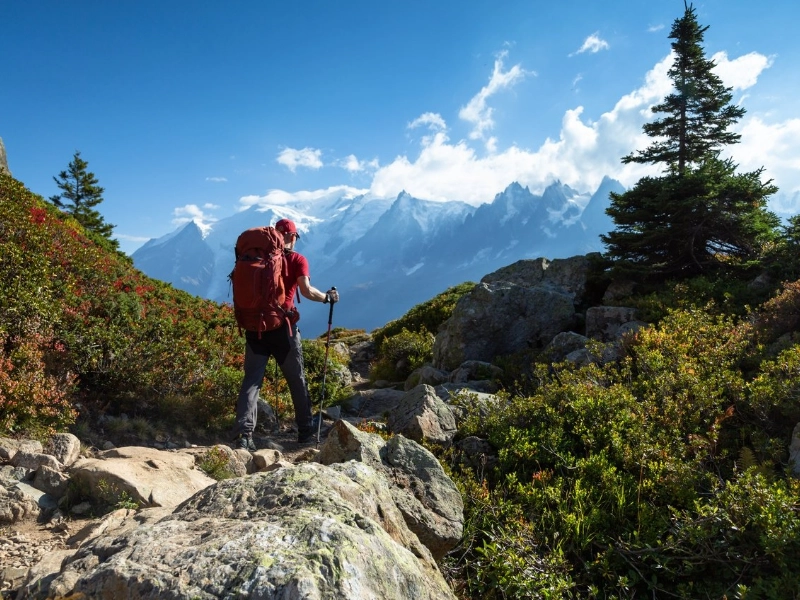 Since hiking tones your muscles and burns calories, it can be a great kind of workout. It is also a good strategy to lower your risk of disease and helps you stay healthy.
It's a good idea to pack light and minimise the weight of your backpack in order to maximise the enjoyment of your journey. This will improve your energy levels and lessen the strain on your knees and back.
Hiking is also a great way to receive vitamin D, which is beneficial for mood control, strong bones, and other health advantages. Hiking can help you get better sleep since it can slow down your heart rate and help you unwind. Additionally, it exposes you to more sunlight, which may aid in regulating your sleep-wake cycle. If you properly nourish and hydrate, it can also build your bones and muscles. Building muscle while hiking will have an impact even if the scale doesn't move right away because muscle tissue burns more calories than fat.
Since hiking tones your muscles and burns calories, it can be a great kind of workout. It is also a good strategy to lower your risk of disease and helps you stay healthy.
It's a good idea to pack light and minimise the weight of your backpack in order to maximise the enjoyment of your journey. This will improve your energy levels and lessen the strain on your knees and back.
Hiking is also a great way to receive vitamin D, which is beneficial for mood control, strong bones, and other health advantages. Hiking can help you get better sleep since it can slow down your heart rate and help you unwind. Additionally, it exposes you to more sunlight, which may aid in regulating your sleep-wake cycle. If you properly nourish and hydrate, it can also build your bones and muscles. Building muscle while hiking will have an impact even if the scale doesn't move right away because muscle tissue burns more calories than fat.
